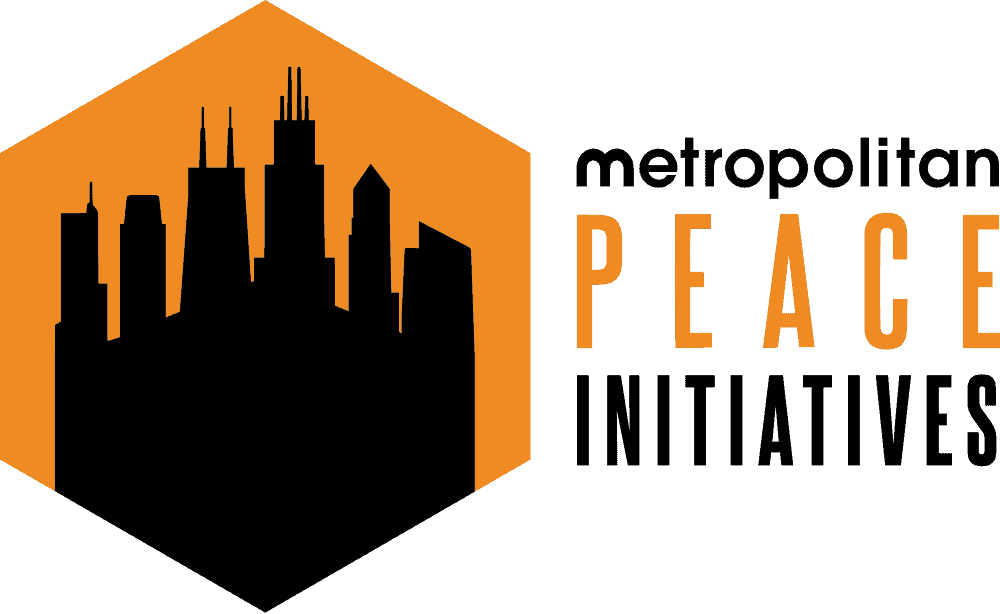Overheard at the 2024 CVIPI Grantee Conference
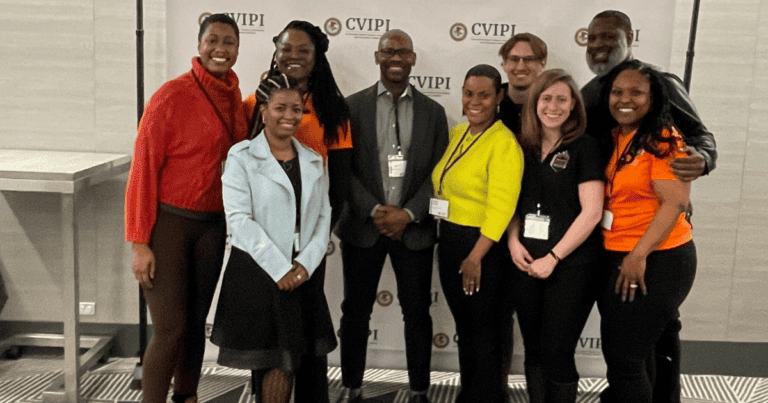
Metropolitan Peace Initiatives (MPI) and Communities Partnering 4 Peace (CP4P) were present at the 2024 Community Based Violence Intervention and Prevention Initiative (CVIPI) Grantee Conference which took place from April 2-5 at the Hyatt Regency in Chicago. The four-day event provided the opportunity for community violence intervention (CVI) professionals from across the country to network, learn, and share best practices for implementing violence prevention efforts.
The conference featured a host of panels, speeches, meet and greets, and social events. Below are some key takeaways from MPI and CP4P staff members who spoke on several panels during the week.
Leveraging CVI Resources to Enhance Collaboration and Capacity
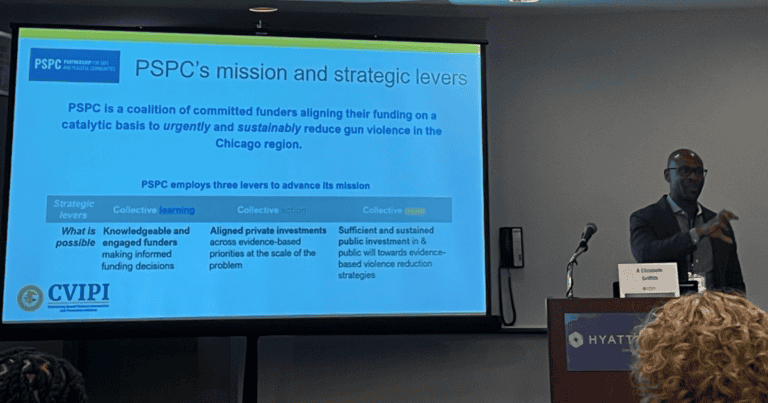
“In 2016, we had a record year in homicides. So, a group of practitioners got together and said ‘How can we do something differently, because what we’re doing is not working.’ At the time, Cure Violence was pretty strong and had been going for a number of years. At the same time, a group of foundations got together and [instead] of doing separate investments in violence prevention, they pooled their resources together and went deep on a couple of initiatives. That’s how the Partnership for Safe and Peaceful Communities was formed.” – Vaughn Bryant, MPI Executive Director
Session Overview: Many CVI resources provide communities with a structured framework to plan and implement tailored CVI strategies specific to unique community violence challenges. This session included panelists that helped author or develop CVI resources such as the CVIPI Implementation Checklist, the CVI Academy, and assessment tools. Time was also provided for questions for sites starting CVI efforts and those looking to supplement their approach by leveraging CVI resources.
Understanding Trauma-Informed Care Principles
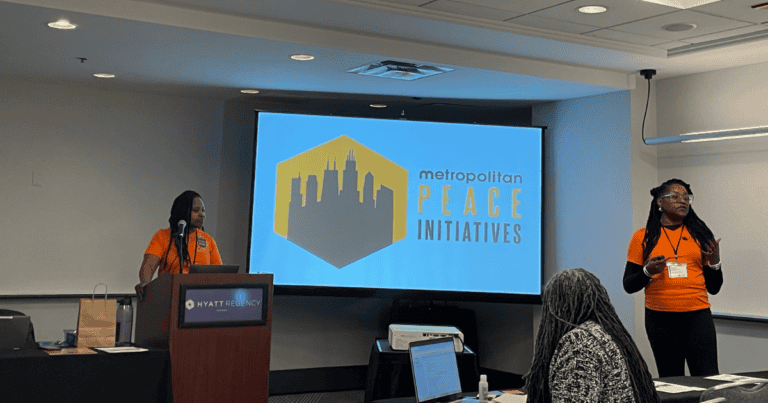
“Because we are working in communities and working for the communities, we need to have a level of understanding and compassion when providing services for underserved communities because they deserve it.” – Tina Cooper, MPI Director of Clinical Training
Session Overview: Behavioral health and trauma-informed care are two critical aspects of CVI work used to reduce violence and create healthy communities. Trauma-informed care promotes healing and builds capacity in the communities we serve. To be effective, violence prevention workers must understand the impact that adverse experiences have on individuals and the communities in which they reside. Integrating trauma-informed practices into our work culture aims to empower individuals and communities with hope and resilience to build agency and capacity. The six guiding principles of the trauma-informed approach were adapted, utilizing language and examples that are relevant and understandable to violence prevention workers to work towards these goals. MPI’s Chief Training Officer Vanessa Perry DeReef, Ph.D. and Director of Clinical Training Tina Cooper moderated the discussion.
Inviting the Frontline into Data-Informed Decision-Making
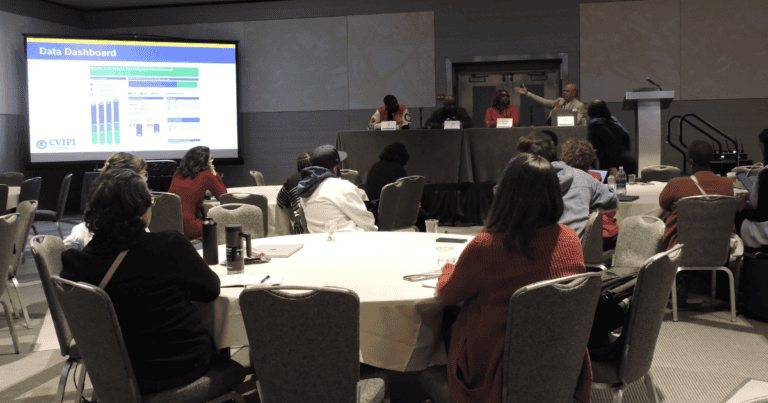
“Data tells a story, but without context, it could be intimidating. It could be overwhelming. For individuals who are on the front line and charged with also increasingly more accountability regarding data, it can be very intimidating. But, I think it’s our responsibility to help them through that, whether it’s methods of understanding that or methods of how you improve on your computer skills. […] This is shifting the narrative but also educating them in a way that’s meaningful and resonates with them both personally and in the community.” – Domonique McCord, MPI Chief Program Officer
Session Overview: This session discussed strategies for engaging staff in data use and how to incorporate data literacy into staff development. Organizations are increasingly recognizing that empowering frontline staff with data and analytical tools to assist them in making decisions will make them far more successful. Yet, it can be challenging to figure out how best to incorporate data-driven practices into the workflows of frontline staff.
When Gender-Based Violence and Community Violence Intersect
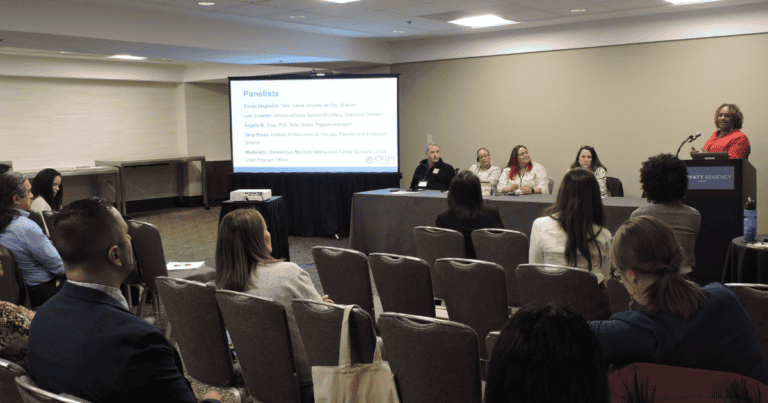
“If you hold up the risk factors for domestic violence and you sit them next to the risk factors for shootings, homicides and community violence, you will see the overlap … We have to deeply think about [the intersection]. When you can begin to see the connections then you can move into two things. One, building a structure of community accountability. Two, we’ve got to have safer options for street-involved women. We have to move beyond the kind of ‘we’re gonna put up a table at a health fair’ model of community outreach. We’ve got to be in the streets.” – Lori Crowder, Alliance of Local Service Organizations (ALSO) Executive Director
Session Overview: Historically, CVI providers and gender-based violence (GBV) providers have worked in their own silos despite shared goals of reducing violence in the home and community, including gun violence. Yet, community violence and gender-based violence are often co-occurring due to shared common risk factors of housing and economic insecurity, fewer access to resources and education opportunities, and cycles of family and community trauma. Both movements utilize coordinated community-centered responses while focusing on modeling empowerment and resilience. This is an emerging area of intersectional practice, and this panel of frontline experts leading the work in both movements aimed to spark awareness and provide practical tools for grantees to bring intentionality into their strategies for interrupting and reducing violence across their communities. The session was moderated by MPI Chief Program Officer Domonique McCord. Institute for Nonviolence Chicago Executive Director Teny Gross was also featured on the panel.
The Role of Intermediaries in Building Organizational Capacity for CVI Programs
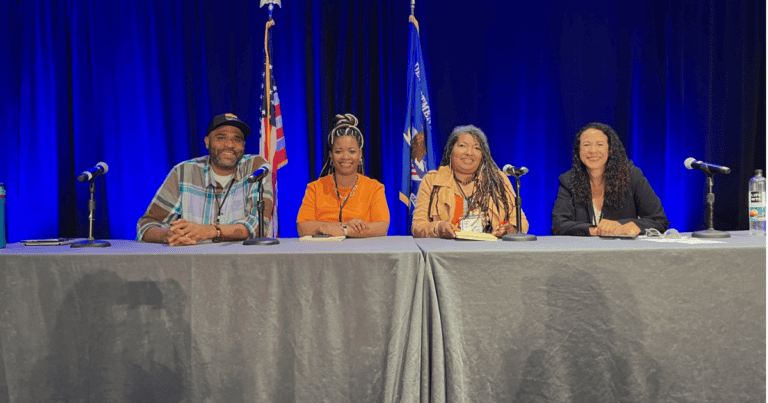
“Partnerships is the heart of this work and it makes the work so much easier and it’s also breaking down those silos and it’s helping us all come together to commit to completing the work.” – Carmela Myles, MPI Program Officer
Session Overview: This workshop was a moderated panel discussion with intermediary organizations working to build the organizational, administrative, and programmatic capacity of small and midsized community-based organizations implementing CVI initiatives. Panelists discussed the rollout of their capacity building programs and shared valuable lessons learned in building the capacity of CVI organizations.
CVIPI Communications Successes and Challenges Presented by the Office of Justice Programs
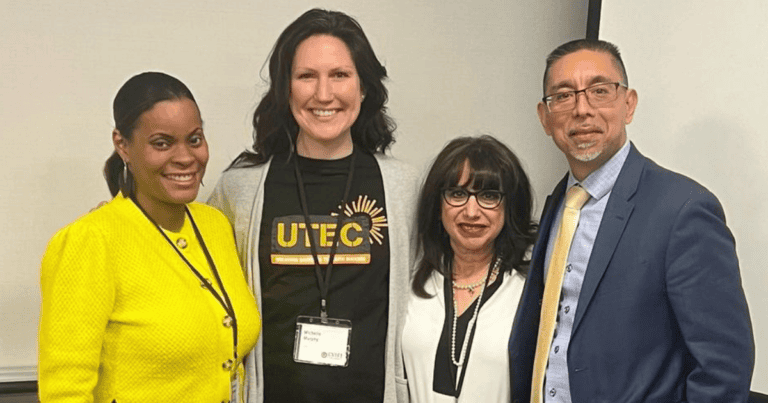
“We try to rely on our Field Managers and Field Outreach Workers to be our voice and move our messaging along. Their stories and lived experiences are the heartbeat of the organization. We call them our ‘superheroes.'” – Geneen Harston, MPI Communications Director
Session Overview: This training focused on the importance of communication for our CVI grantees and discussed communication challenges, best practices, as well as tips and resources that can help individuals succeed as CVI communications professionals. A panel of CVI experts in the communication field provided their first-hand experiences and feedback on the challenges of CVI communication work as well as examples of successful communication products they have launched, and how they’ve avoided pitfalls.
